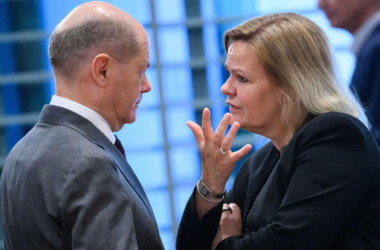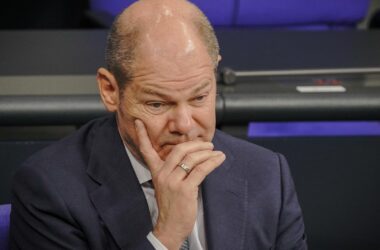A recent survey from the New York Federal Reserve has revealed troubling signs in the U.S. labor market, signaling that the economic landscape may be shifting in ways that are causing concern for both workers and policymakers. The survey, which is conducted three times a year, highlights a decline in employment, an increase in job-seeking activity, and growing dissatisfaction with compensation—indicators that the labor market is facing significant stress.
The data from July paints a picture of a workforce increasingly uneasy about job security and future prospects. For the first time since the survey began in 2014, only 88% of those employed in March remained in their jobs by July. This is the lowest retention rate on record and suggests that job stability, once a cornerstone of the American economy, is weakening. At the same time, the percentage of those expecting to lose their jobs rose to 4.4%, another record high for the survey.
Moreover, a historic 28.4% of respondents reported actively searching for new employment within the previous four weeks, reflecting a growing sense of urgency among workers to secure better opportunities in a market that seems to be tightening. This surge in job-seeking activity suggests that many Americans are feeling the squeeze, either due to dissatisfaction with their current roles or concerns about the sustainability of their employment.
Compounding these worries is a noticeable drop in satisfaction with pay and benefits. Only 56.7% of workers reported being satisfied with their wages, down more than three percentage points from the same period last year. Satisfaction with benefits also plummeted, particularly among women, those without a college degree, and individuals earning less than $60,000 a year. These declines in satisfaction could be a harbinger of broader discontent, especially as inflation continues to erode the purchasing power of many households.
The survey also revealed a growing expectation among workers that they will need to remain in the workforce longer than they might have previously planned. The percentage of respondents expecting to work past age 62 has increased to 48.3%, while those anticipating working beyond age 67 rose to 34.2%. This trend reflects both economic necessity and a recognition that retirement may be increasingly out of reach for many Americans.
Despite an unemployment rate of 4.3%, which remains low by historical standards, the recent uptick in unemployment and the sluggish growth in nonfarm payrolls—just 114,000 jobs added in July—are causing concern. The August jobs report, set to be released in early September, will be closely watched for signs of further deterioration in the labor market.
Fed officials, following their latest meeting, acknowledged that job growth has “moderated,” a diplomatic way of noting that the labor market is cooling. With the central bank widely expected to cut its key borrowing rate by a quarter percentage point at its September meeting, the first rate cut in more than four years, there is a clear recognition that the economy may need support to avoid sliding into a more serious downturn.
These developments raise serious questions about the direction of the U.S. economy. The labor market, once a source of strength, is showing signs of strain, and the dissatisfaction with wages and benefits underscores the growing disconnect between the cost of living and the compensation workers receive. As more Americans express concerns about job security and the need to work longer into their senior years, it is evident that the economic challenges facing the country are far from over.
For conservative policymakers and citizens alike, these findings should serve as a wake-up call. The American Dream of stable employment, fair wages, and a secure retirement is under threat, and bold, principled leadership is needed to restore confidence in the economy. This is a moment to prioritize policies that encourage job creation, protect workers, and ensure that the rewards of hard work are within reach for all Americans. The future of our nation’s prosperity depends on it.








